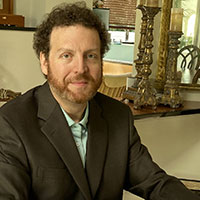Frequently asked questions on OPT, STEM OPT and H-2B’s

I am an international student on an F-1 visa and I am about to graduate from my University in May. How can I stay in the US and work?
The most important piece of advice I give to all of my clients and potential clients is to “maintain your immigration status”. Your F-1 visa is only valid while you are enrolled in school or in an approved job training program. Once you graduate you have a 60-day grace period to 1) depart the United States, 2) enroll in another academic institution, 3) get a different visa, OR 4) start a post-completion job training program. Optional Practical Training (OPT) is a job training program that authorizes you to work for up to 12 months while you are still on your F-1 visa. This one-year OPT applies to all undergraduate and graduate fields of study.
Remember, if you used up all or part of your 12 months of job training while in school, you may not be eligible for any post-completion OPT. Additionally, your OPT must be sufficiently related to your field of study. For example, a student who studied performing arts should be able to work for a theater company. However, the same student would likely not be able to work for a real estate agency while on OPT.
I run a U.S. based computer software company and I would like to hire an international student to work at my firm. Can I hire him?
I would make sure the student is studying a computer related field and that the job training program is designed to fit the curriculum they studied or are studying. As long as the F-1 Optional Practical Training requirements are met they should be eligible to work for your business for up to 12 months of OPT. It is important to know that OPT can be used during school (pre-completion) or after graduation (post-completion).
Can I hire an engineering graduate who will have already used up her 12 months of OPT?
Let’s briefly discuss STEM and why the STEM fields are so desirable for both students and employers. STEM stands for Science, Technology, Engineering, and Mathematics. Here is some more exciting news. The U.S. Department of Homeland Security recently expanded the STEM OPT program to include 22 new fields of study such as data science and financial analytics. If your potential F-1 OPT employee graduated from a U.S. college/university with a STEM degree, they can apply for a 24-month STEM OPT extension while still on their original F-1 visa. STEM graduates can essentially get up to 3 years of OPT.
I am a U.S. business owner and I need to hire some foreign workers in the short term, what can I do?
The H2B visa is a type of non-immigrant visa that allows a U.S. employer to hire foreign employees only for temporary/seasonal jobs. Unlike H-2As, the H-2B is a non-agricultural visa. Many hotels, restaurants, construction companies, and other businesses hire workers on H-2B visas. Just like the H-1B visa, the H-2B requires a U.S. employer to petition for the visa on behalf of their candidate (employee) and obtain a labor certification. To qualify for H2B visa a U.S. employer must:1) show there is a shortage of available qualified U.S. workers. 2) prove that hiring the H-2B employee will not negatively affect the wages or working conditions of similarly situated U.S. workers. 3) demonstrate the need for foreign workers is “temporary”.
Any of the following could be classified as “temporary”:
- A one-time event or occurrence creates the need (e.g. a construction project or the opening/re-modeling of a new business).
- The employer can demonstrate a seasonal need that is tied to a yearly event (e.g. a summer or winter tourist season).
- If the employer can show it has not hired permanent employees to fulfill a specific job, the company can hire foreign workers on H-2Bs for intermittent needs.
The U.S. employer needs to remember that:
- An H-2B visa doesn’t lead to a Green Card.
- Employees from India and China are not eligible for H-2Bs.
- There is a cap on H-2B visas just like H-1B visas.
This article does not constitute a solicitation or provision of legal advice and does not establish an attorney-client relationship. The answers provided should not be used as a substitute for obtaining legal advice from an attorney licensed or authorized to practice in your jurisdiction. You should always consult a suitably qualified attorney regarding any specific legal problem or matter in a timely manner.
 About Author
About Author
Attorney Seth Finberg is a 2005 graduate of the University of Georgia School of Law and is a member of the Georgia Bar and the American Immigration Lawyers Association (AILA). He is the owner and founder of Finberg Firm PLLC (located in Ft. Lauderdale, FL) and he represents clients nationwide and internationally in the areas of business, employment, and family-based immigration. Mr. Finberg is an active member of the Miami Asylum Office Committee for AILA South and Central Florida and he serves as a legal captain in pro bono clinics for Temporary Protected Status. Seth has been recognized for his outstanding pro bono service by the South Florida chapter of the American Immigration Lawyers Association, winning their 2021 Pro Bono Champion award. He can be reached by phone at (954)-843-3568 / (954) 249-6603 or by email at seth@finbergfirm.com or at www.finbergfirm.com
























